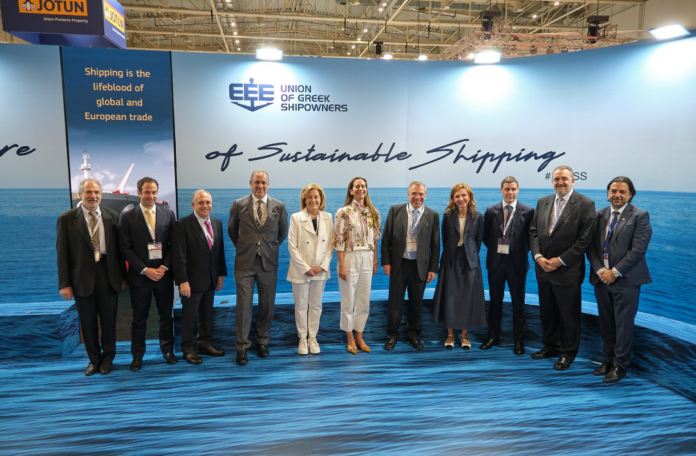Marily Fragista underlined the positive results of the Greek-French cooperation in the shipping sector during a conference held in Paris, entitled “Thalassa: From the Archipelago to the Oceans.”
Fragista, member of the board of directors of the Union of Greek Shipowners, and member of the Maritime Committee of the Hellenic-French Chamber of Commerce & Industry which was established in June 2022, under the auspices of the French Embassy in Greece, stressed the contribution of shipping in the well-being of EU citizens.
It ensures, she noted, the supply of most of the necessary raw materials, energy, food and other basic items.
She also reiterated the statement of the former president of the European Commission, José Manuel Barroso, who fully recognized the role of shipping, and recently sounded the alarm in Europe: “Achieving the right balance between the agenda for climate and competitiveness is a big issue for the EU. We do not have a strategy for the competitiveness of our shipping and we should urgently adopt one.”
Moreover, she said that more than 74% of the European Union’s external trade is carried by sea, that the European Union relies on imports to cover 98% of its needs for crude oil, oil products and natural gas, and that 92% of of solid fossil fuels and 42% of liquefied natural gas is transported by ships.
She also noted that Greek-owned shipping with over 5,500 ships represents over 60% of the total fleet of the European Union.
“Shipping is the most efficient mode of transport, both in terms of cost and environmental conditions,” the Greek shipowner said, adding that “the shipping sector has managed to take advantage of economies of scale and technological achievements to the maximum extent possible, with direct economic benefits for the end user, that is, the consumer and the citizens of the world.”
Regarding alternative fuels, Fragista emphasized that they must meet three basic conditions:
- To be safe for seamen, ships and the environment.
- To be available in sufficient quantities around the world and
- To be affordable, for the benefit of global prosperity.
“The development and availability of new alternative fuels depends on the cooperation of entities related to shipping, such as fuel producers and suppliers, shipyards, classifiers and engine manufacturers,” she concluded.














